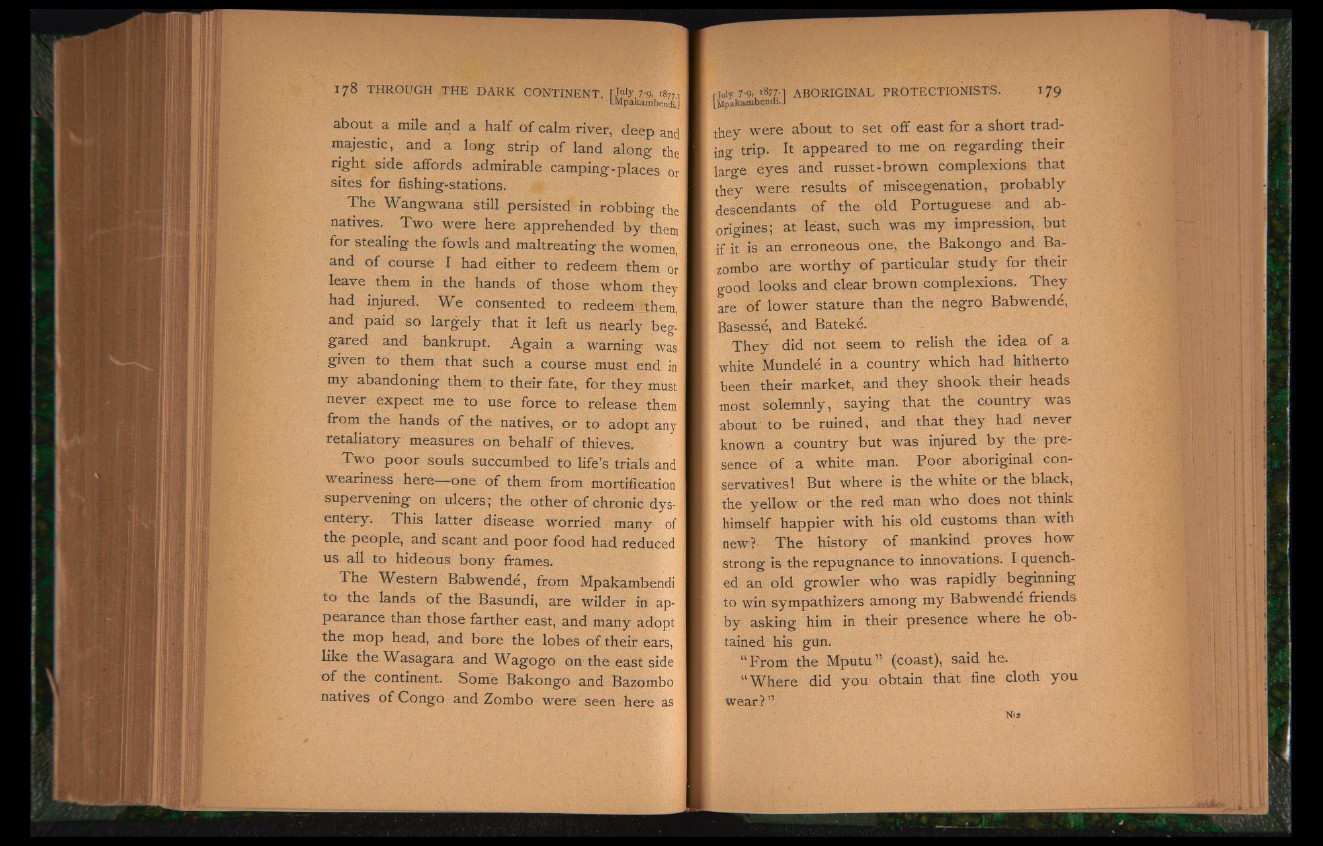
1 7 8 T H R O U G H T H E D A R K C O N T IN E N T . rJ"Iy 7-9, 1877.-.
LMpakambendL j
about a mile and a half of calm river, deep and
majestic, and a long strip of land along the
right side affords admirable camping-places or
sites for fishing-stations.
The Wangwana still persisted in robbing the
natives. Two were here apprehended by them
for stealing the fowls and maltreating the women,
and of course I had either to redeem them oí
leave them in the hands of those whom they
had injured. We consented to redeem them,
and paid so largely that it left us nearly beggared
and bankrupt. Again a warning was
given to them that such a course must end in
my abandoning them to their fate, for they must
never expect me to use force to release them
from the hands of the natives, or to adopt any
retaliatory measures on behalf of thieves.
Two poor souls succumbed to life’s trials and
weariness here— one of them from mortification
supervening on ulcers; the other of chronic dysentery.
This latter disease worried many of
the people, and scant and poor food had reduced
us all to hideous bony frames.
The Western Babwende, from Mpakambendi
to the lands of the Basundi, are wilder in appearance
than those farther east, and many adopt
the mop head, and bore the lobes of their ears,
like the Wasagara and Wagogo on the east side
of the continent. Some Bakongo and Bazombo
natives of Congo and Zombo were seen here as
rluly 7 -9. 1877-“1 A B O R IG IN A L P R O T E C T IO N I S T S . 1 7 9
[M p a k am b en d i. J
they were about to set off east for a short trading
trip. It appeared to me on regarding their
large eyes and russet-brown complexions that
they were results of miscegenation, probably
descendants of the old Portuguese and aborigines;
at least, such was my impression, but
if it is an erroneous one, the Bakongo and Bazombo
are worthy of particular study for their
good looks and clear brown complexions. They
are of lower stature than the negro Babwende,
Basesse, and Bateke.
They did not seem to relish the idea of a
white Mundele in a country which had hitherto
been their market, and they shook their heads
most solemnly, saying that the country was
about' to be ruined, and that they had never
known a country but was injured by the presence
of a white man. Poor aboriginal conservatives!
But where is the white or the black,
the yellow or the red man who does not think
himself happier with his old customs than with
new?- The history of mankind proves how
strong is the repugnance to innovations. I quenched
an old growler who was rapidly beginning
to win sympathizers among my Babwende friends
by asking him in their presence where he obtained
his gun.
“ From the Mputu” (coast), said he.
“Where did you obtain that fine cloth you
wear? ”
N12